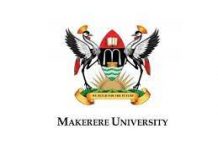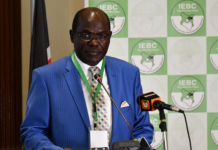
Kenyans are readying for a BBI referendum at the beginning of the month of June or latest July 2021.
Since Kenya gained independence, the BBI will be the fourth referendum. Kenya will conduct a constitutional referendum. This is after many county assemblies proceeded to pass the amendment bill.
However, it is important to note that not all proposals in the Building Bridges Initiative (BBI) need a referendum once they are passed in Parliament. The BBI is undergoing this stage at the moment.
The important thing for teachers is what is in for them in the Building Bridges Initiative. How will the BBI affect schools and teachers? We provide this information and much more in this article.
The proposals in the BBI will affect recruitment and staffing among teachers.
The BBI task force came up with proposals that programs be put in place for cultural exchange and integration between different schools. This means learners could be able to appreciate the varied cultures and dynamics in the country.
Read also
“On teacher recruitment, the Ministry of Education should adopt policy guidelines that discourage local recruitment and staffing of teachers, depending on the circumstances,” recommended the report.
This means that the delocalization of teachers will be part of the constitution and not just a policy of the Teachers Service Commission (TSC).
In previous times, there were issues between the Kenya National Union of Teachers (KNUT) and the Teachers Service Commission (TSC) over the policy of delocalizing the teaching staff. TSC said that the delocalization of teachers is not something new.
The Teachers Service Commission, however, said that the delocalization of teachers is not meant to be a punishment but is rather intended to achieve national cohesion.
The delocalization of teachers begun with classroom teachers in 2016. Newly employed classroom teachers were sent to counties far from their homes.
School heads soon followed suit as they were delocalized after TSC enhanced their pay.
The Teachers Service Commission (TSC) CEO Dr. Nancy Macharia as she appeared before the Senate Committee for Education in 2020, she defended the delocalization of teachers saying that it is not meant to punish the teaching staff but to promote national cohesion.
Dr. Nancy Macharia admitted challenges the transfers had in the beginning but added that the Commission had fixed them.
“Delocalization is simply a transfer; we want to ensure teachers do not teach in their locality for their entire teaching life but are exposed to other cultures,” said Dr. Macharia.
The CEO said that TSC stopped transferring teachers to regions far away from their counties. She said that primary teachers are transferred from one sub-county to another within the same county or in counties that are near their home counties.
“Secondary school teachers who are transferred to other counties are those who have been promoted to senior positions which they applied for,” said the TSC CEO.
The delocalization policy of TSC, the career development programs, and teacher appraisals have led to a fractured relationship between TSC and the Kenya National Union of Teachers (KNUT).
KNUT was against the way that delocalization was done in recent years as they felt it was meant to punish teachers.
KNUT then submitted a proposal to the BBI team to have TSC as a department in the Ministry of Education.
How to Upload Documents of Dependents on AON Minet’s website
AON Minet Set Deadline for Uploading Dependants Documents on…
However, the BBI team disagreed with the proposal saying that TSC is an independent constitutional body, and the reasons that KNUT submitted for it to be set as a department in the Ministry of Education did not merit the decision.
The BBI task force reported indicated ethnic antagonism and competition are a big threat to the continuity of the nation as well as national cohesion.
The stakeholder recommended a review of the curricula to introduce and integrate the teaching of national unity, character, and cohesion to learners during their formative or early years. This is to be done via the Ministry of Education and the Kenya Institute of Curriculum Development (KICD).
A review of policies was proposed in the education sector to promote social integration, more so regarding admissions in schools and institutions of higher learning.
Stakeholders also agreed with the BI report that efforts had to be made to ensure there is a national outlook in student and staff populations in all schools.
The Teachers Service Commission has refuted claims that there are plans for a mass transfer of teachers across the country once the national examinations are completed.
In the past month, an article published on ‘The Standard Paper’ that the Commission has instructed its regional staff to collect and forward the data of school heads who have stayed in one station for more than nine years so that they could be transferred this month and in May once schools have completed the national examinations.
On the 26th of February a memo communicated to all Regional Directors of Education, TSC wanted to be given the details of primary school headteachers and principals of secondary schools who have left the teaching service.
However, the commission then said to the media that the internal memo cited by a local newspaper only sough routine field data on staffing of schools for purposes of planning but was not meant to initiate transfers.
“Our attention has been drawn to a story in the Standard of today, 9th of March 2021. Under the headline, TSC sets the pace for a Fresh round of mass transfers. The TSC wishes to refute the claims made in the story that the Commission plans to conduct a mass transfer of teachers countrywide,” said Rita Wahome, director of staffing.
Besides, the teachers the TSC said that its CEO Dr. Nancy Macharia announced before the reopening of schools in January 2021 that the commission would not conduct the mass transfer of teachers in 2021 because of challenges related to COVID-19.
In addition, the congested revised academic calendar leading to national examinations in March was also another reason the mass transfer of teachers did not go through.
TSC assured the country through the TSC CEO that positions vacated through natural attrition will be filled.
“The Commission, therefore, wishes to assure teachers that the Commission does not plan to effect any mass transfers as alleged in the newspaper story. Teachers must be left to continue conducting their normal teaching duties and conduct the national examinations without any interference,” stated the statement.
In the past week, President Uhuru Kenyatta nominated Jamleck Muturi to be TSC Chairperson after Lydia Nzomo left office.
His Excellency President Uhuru also nominated Alfred Otieno Oyucho as a TSC member.
The Teachers Service Commission (TSC) has nine members in total and every region has defunct provinces.











